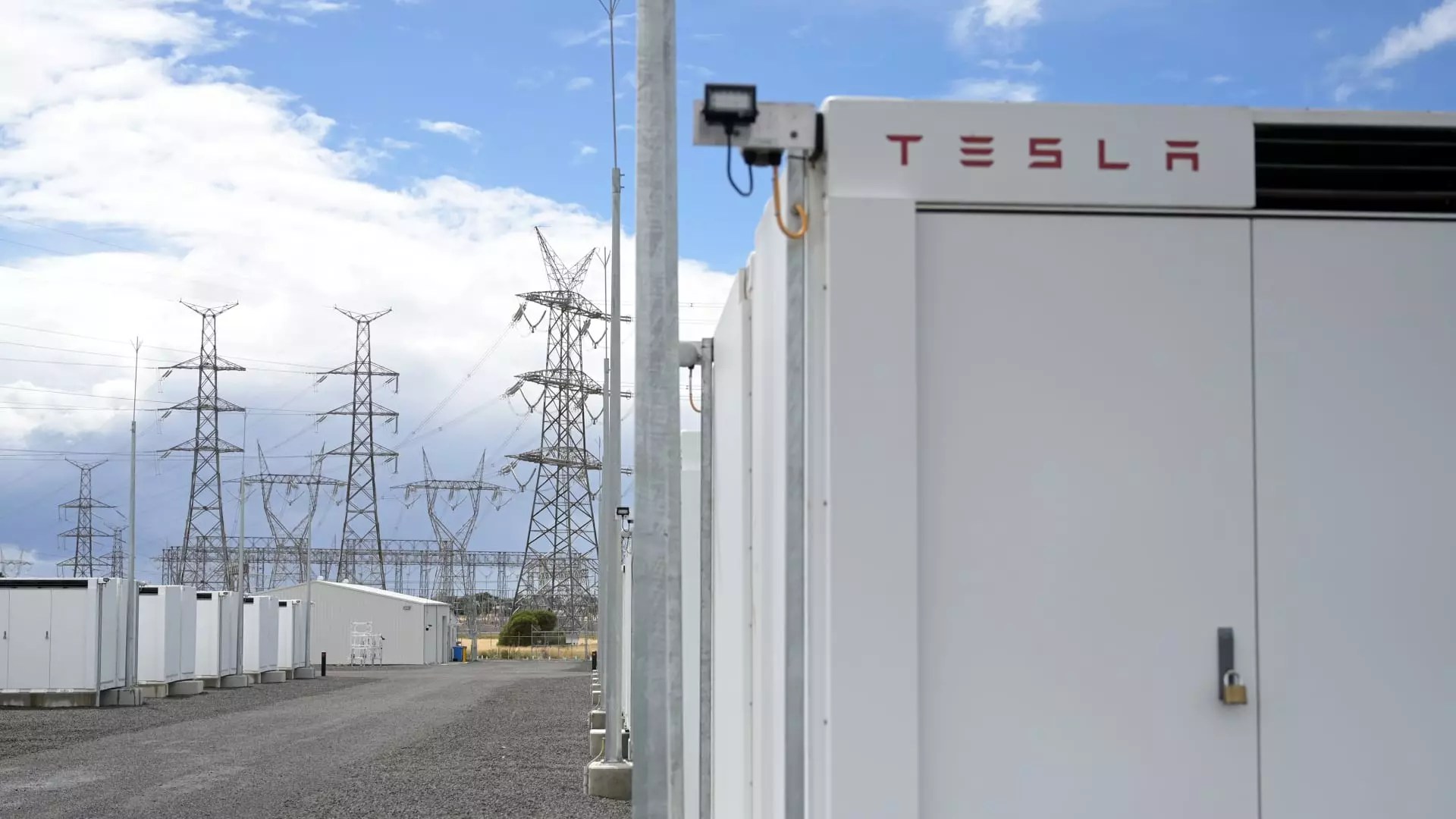In a surprising yet bold maneuver, Tesla has inked a significant agreement to construct a grid-scale battery power plant in China, valued at 4 billion yuan (approximately $556 million). This venture comes at a tricky time for U.S.-China relations, which have been marred by tariffs and trade battles exacerbated under the previous U.S. administration. While many applaud Tesla’s vision of renewable energy, this deal invites scrutiny on multiple fronts, as it not only underscores the complexities of global business but also reflects a growing dependence on a nation that remains at odds with Washington.
The backdrop of rising tariffs and geopolitical strain casts a shadow over what could have been a straightforward business expansion. Here, Tesla has to walk a tightrope: engaging in one of the world’s fastest-growing markets while navigating the increasingly turbulent waters of international trade policy. To many, this deal epitomizes a risky gamble in an already volatile landscape—one that risks undermining the very principles of free-market capitalism that Tesla professes to champion.
Strategic Significance in the Face of Competition
Yet, this deal is not without its strategic merit. Tesla aims to seize an opportunity in the burgeoning field of battery storage systems, especially as rivals like BYD and CATL consolidate their positions. Tesla’s project, once completed, would stand as the largest grid-side energy storage initiative in China, bolstering its presence in a market where competition is rising at an alarming pace. For every Megapack produced at Tesla’s Shanghai factory, there is a looming question: can these advancements keep pace with rapidly evolving local competitors?
CATL, which holds a staggering 40% of the global battery market share, looms large in the background as Tesla attempts to carve out its own space. This deal could either represent a masterstroke for Tesla or a desperate effort to catch up; only time will reveal the outcome. If Tesla can leverage innovation combined with local manufacturing, they may find a way to overcome the competitive landscape and solidify their leading status.
The Role of China in Tesla’s Growth Narrative
China plays a pivotal role in Tesla’s growth strategy; the sheer volume of demand and governmental support for renewable energy projects offers fertile ground for the company’s ambitions. With Beijing setting a target of 5 gigawatts of additional battery-powered electricity by 2025, this partnership could generate substantial profits. The promise of reliable energy storage systems dovetails neatly with China’s goals of achieving a more sustainable energy landscape.
However, this partnership raises ethical questions about reliance on a nation that may not share similar ideals regarding human rights, regulation, and the environment. Critics may cite the potential contradiction of working with a state where labor practices and environmental policies fall short of global standards. Thus, Tesla’s practical actions can clash with the ideological principles they often promote.
The Cost of Innovation: Will it Pay Off?
Moreover, at nearly $1 million per Megapack, the economic feasibility of this grid-scale battery solution remains to be seen. Tesla asserts that their technology will effectively regulate urban electricity and solve supply pressures in Chinese cities, but this assertion begs the question: At what cost? This hefty investment implies that Tesla believes the returns will outweigh the risks—both financially and ethically.
If successful, Tesla’s Megapacks could dominate not just in China but also in global markets, further entrenching their role in the energy storage space. Yet, should they falter or face backlash from U.S. policymakers aiming to curtail foreign partnerships, the fallout could be significant, possibly jeopardizing their R&D initiatives and reputation in a strategically essential region.
An Innovation with Implications
Ultimately, this deal with a local Chinese government agency represents more than just a business transaction; it embodies a microcosm of the challenges and opportunities that multinational corporations face in an increasingly polarized world. For every Megapack rolling out of Shanghai, there are broader implications for U.S.-China relations, market competition, and ethical business practices.
Tesla’s commitment to innovation continues to push boundaries, but it shines a light on a crucial debate: When should corporate growth take a backseat to moral considerations? In an era where energy storage is not just a business but also a political statement, Tesla’s path forward may be fraught with more than just market risks—it’s an exploration of the future of energy, waste, and global economics.


Leave a Reply